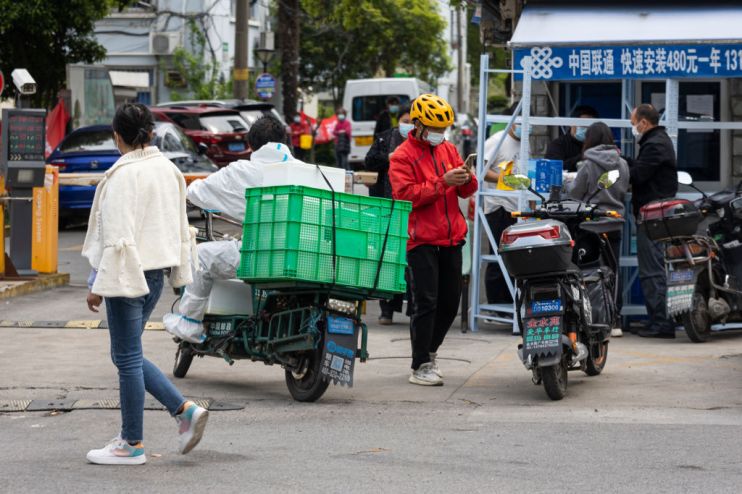Latest Chinese economic data sends shockwaves through Asia as world’s second-largest market shrinks

After Shanghai and other cities shut down to fight coronavirus outbreaks, China’s economy contracted in the three months ending in June compared with the previous quarter.
The world’s second-largest economy shrank by 2.6 per cent, down from the January-March period’s already weak 1.4 per cent, official data showed today.
Activity was “much weaker than expected”, Rajiv Biswas of S and P Global Market Intelligence said in a report.
The Hong Kong exchange was down 0.8 per cent at mid-morning, even though the government said a “stable recovery” is underway after businesses reopened.
Lockdown impact
Anti-virus controls shut down Shanghai, site of the world’s busiest port, and other industrial centres starting in late March, fuelling concerns global trade and manufacturing might be disrupted.
Millions of families were confined to their homes, depressing consumer spending.
Factories and offices were allowed to start reopening in May, but economists say it will be weeks or months before activity is back to normal.
Economists and business groups say China’s trading partners will feel the impact of shipping disruptions over the next few months.
“The resurgence of the pandemic was effectively contained. The national economy registered a stable recovery.”
Chinese statistics agency
Data on factory output, consumer spending and other activity suggest overall growth was even weaker than the headline figure, Julian Evans-Pritchard of Capital Economics said in a report.
“Even accounting for June’s strength, the data are consistent with negative (year-on-year) growth last quarter,” Mr Evans-Pritchard wrote. “This isn’t the first time that the official GDP figures have seemingly understated the extent of an economic downturn.”
The slump hurts China’s trading partners by depressing demand for imported oil, food and consumer goods.
China’s infection numbers are relatively low, but Beijing responded to its biggest outbreak since the 2020 start of the pandemic with a “zero-Covid” policy that aims to isolate every person who tests positive. The ruling party has switched to quarantining individual buildings or neighbourhoods with infections but those restrictions covered areas with millions of people.
Beijing is promising tax refunds, free rent and other aid to get companies back on their feet, but most forecasters expect China to fail to hit the ruling party’s 5.5 per cent growth target this year.